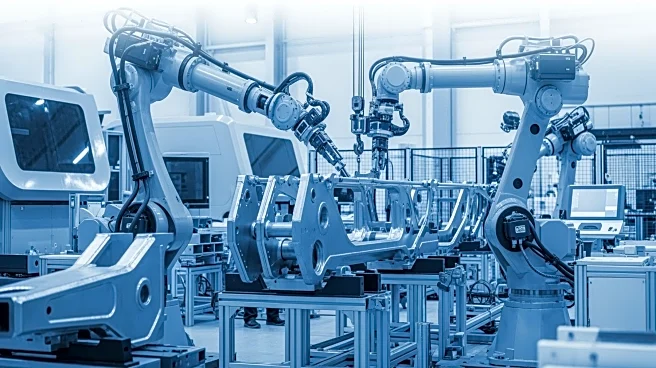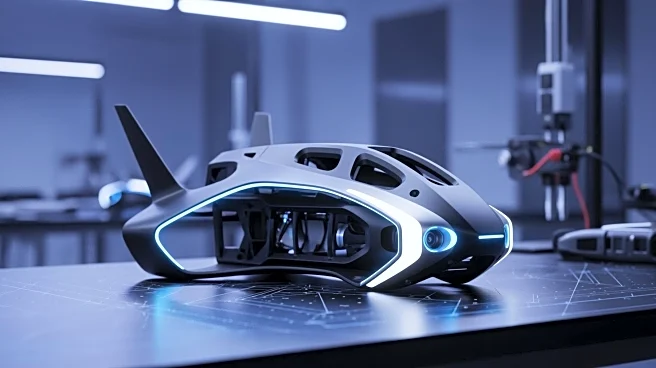What's Happening?
Liebherr is set to invest a substantial nine-figure sum to modernize its tower crane production facilities in Biberach, Germany, by 2034. The modernization project will involve renovating and expanding the existing production plant, which dates back to the early
1980s. The upgraded facility aims to manufacture approximately 500 top slewing cranes, 200 mobile self-erecting tower cranes, and 3,000 tower sections annually. Werner Seifried, the development managing director, emphasized the need for state-of-the-art production capabilities to meet growing market demands and increasing customer requirements. The modernization will be executed in five phases to ensure ongoing operations are not disrupted. Initial investments will include automated welding robots, a linked edge rounding system with robots, a metal processing center, and an assembly assistance system.
Why It's Important?
The modernization of Liebherr's Biberach facility is significant for the crane manufacturing industry, as it reflects the company's commitment to maintaining competitive production capabilities in a rapidly evolving market. By investing in advanced technologies and expanding production capacity, Liebherr aims to meet the increasing demands of its customers and enhance its position in the global crane market. This development could lead to improved efficiency and innovation in crane manufacturing, potentially benefiting construction and infrastructure projects worldwide. The integration of international production sites in Spain and India further underscores Liebherr's strategic approach to optimizing its global operations.
What's Next?
As Liebherr progresses with the modernization of its Biberach facility, stakeholders can anticipate enhanced production capabilities and potentially new product offerings. The relocation of the Tower Crane Centre from Bad Waldsee to Bad Schussenried will establish a new hub for rentals, repairs, and testing, which may attract additional business opportunities. The integration of international production sites suggests a streamlined approach to manufacturing, which could lead to increased collaboration and innovation across Liebherr's global operations. Industry observers will likely monitor the impact of these changes on Liebherr's market share and competitive standing.
Beyond the Headlines
The modernization of Liebherr's Biberach facility may have broader implications for the crane manufacturing industry, including potential shifts in employment patterns and skill requirements. As automated technologies become more prevalent, there may be a need for workforce retraining and adaptation to new production processes. Additionally, the environmental impact of modernized facilities, such as energy efficiency and waste reduction, could become a focal point for industry standards and regulations.















